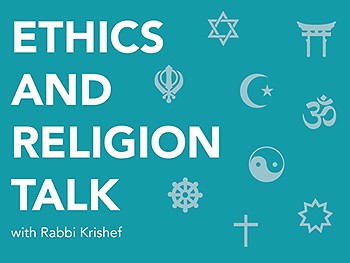Dr Sahibzada, the Director of Islamic Center and Imam of the Mosque of Grand Rapids, responds:
“Most fundamental point about faith is, ‘What kind of our belief is about God, His powers and actions.’ My belief in God is that He is One. The Creator of everything. He has absolute powers. He is aware of everything, what we think and do about each moment of our life. On the top of this He has provided humankind discipline and guidance through his chosen Messengers, Prophets the revealed Books.
“He, without any doubt, does hear our prayers and does really care about His creation. He is The Provider for all His creation either someone believes in Him or rejects Him. His Mercy has dominated Him over other characteristics and gives us hope that never be disappointed from God’s Mercy. The deprived persons of His hope are those who deny His existence and disobey His given way of life.
“Our acceptance of prayers has two aspects:
a) Our prayers will be honored and heard when we listen to Him. Results of our prayers will be given in this world or saved for The Hereafter.
b) Those who reject Him and do not listen to Him rather worship other than God, they follow evil forces but still being the Merciful God is their Provider.”
The Rev. Sandra Nikkel, head pastor of Conklin Reformed Church, responds:
“God cares and God hears our prayers! ‘For God so loved the world that he gave his one and only Son, that whoever believes in him shall not perish but have eternal life.’ (John 3:16). God’s desire is that everyone (including you and me) has life and lives it to the fullest. He is not detached or distant. He is close and comfortable near us and he is pleased when we bring our requests to him in prayer. In fact, he encourages us not to worry but to pray in every situation. ‘Do not be anxious about anything, but in every situation, by prayer and petition, with thanksgiving, present your requests to God.’ (Philippians 4:6)”
Father Kevin Niehoff, O.P., a Dominican priest who serves as Adjutant Judicial Vicar, Diocese of Grand Rapids, responds:
“The response to this question necessitates the need to define prayer. ‘Prayer is the raising of one’s mind and heart to God or the requesting of good things from God’ (Catechism of the Catholic Church, p. 613). Scripture reminds us that ‘everyone who exalts himself/ herself will be humbled, but the one who humbles himself/ herself will be exalted’ (Luke 18:14b).
“I remember a question from the Baltimore Catechism, why did God make you? The response is ‘to know God, to Love God and serve God in this life, and to be with God in the next.’
“When we spend time with friends what do we do? We talk, and laugh, and simply enjoy one another’s presence. Likewise, to build a friendship with God we must spend time with Him in quiet conversation… which is called prayer.
“God deeply loves each human being, therefore, YES, God REALLY is able to hear our prayers and God REALLY does cares!”
Rev. Ray Lanning, a retired minister of the Reformed Presbyterian Church of North America, responds:
“Presbyterianism teaches that God is an intelligent, personal being, not an impersonal force. God can both hear and answer our prayers. ‘O God that hearest prayer, unto Thee shall all flesh come’ (Psalm 65:2). God promises to hear our prayers and especially, the cries of the poor, the afflicted, the distressed, and the dying. ‘The LORD is nigh unto all that call upon Him, to all that call upon Him in truth’ (Psalm 145:18).
“But what is prayer? ‘Prayer is an offering up of our desires to God for things agreeable to His will, in the name of Christ, with confession of our sins, and thankful acknowledgment of His mercies’ (Shorter Catechism Q. 98). Prayer is ‘heart to heart’ communication with God. We begin with His promises to us, and ask accordingly. Invoking Christ’s name, we join our prayers to His prayers for us, and rely on His merit, not our own. Because it separates us from God, sin must be confessed in order to remove any barrier to communion with God (Psalm 66:18). Giving thanks for mercies received is eye-opening for us, reminding us that our plight is seldom as bleak as it seems.
“And yes, God cares! ‘Like as a father pitieth his children, so the LORD pitieth them that fear Him’ (Psalm 103:13). The fear of God is faith’s response to the infinite holiness, glory, and power of God. We marvel that this great God ‘humbleth Himself to behold the things that are in heaven, and in the earth’ (Psalm 113:6). God’s promise is, ‘Call upon Me in the day of trouble; I will deliver thee, and thou shalt glorify Me’ (Psalm 50:15).”
Note: The Ethics and Religion Talk panel will revisit this question and share four additional responses in two weeks.
This column answers questions of Ethics and Religion by submitting them to a multi-faith panel of spiritual leaders in the Grand Rapids area. We’d love to hear about the ordinary ethical questions that come up in the course of your day as well as any questions of religion that you’ve wondered about. Tell us how you resolved an ethical dilemma and see how members of the Ethics and Religion Talk panel would have handled the same situation. Please send your questions to [email protected].
The Rapidian, a program of the 501(c)3 nonprofit Community Media Center, relies on the community’s support to help cover the cost of training reporters and publishing content.
We need your help.
If each of our readers and content creators who values this community platform help support its creation and maintenance, The Rapidian can continue to educate and facilitate a conversation around issues for years to come.
Please support The Rapidian and make a contribution today.
